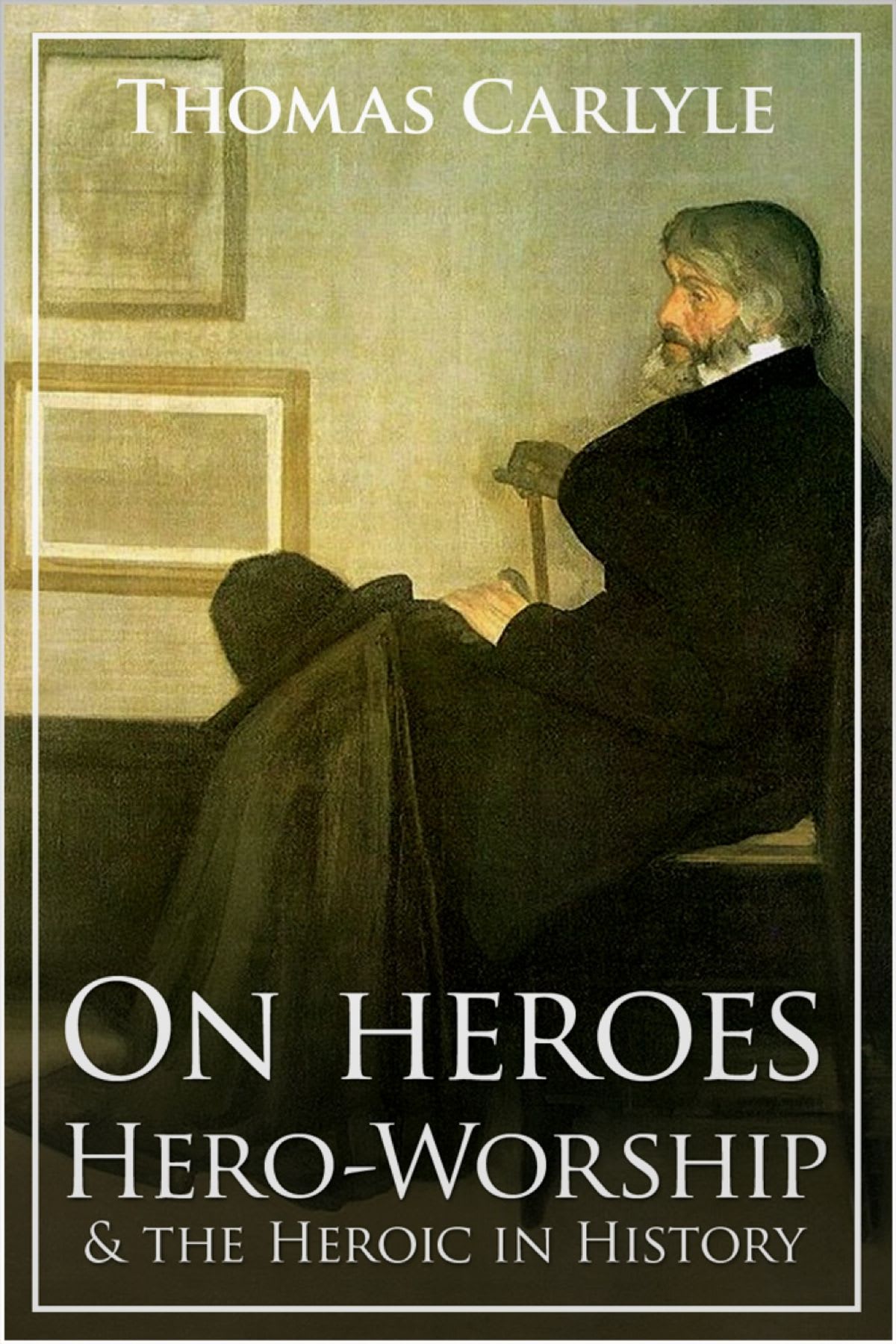It was part of the individualistic character of the nineteenth century to conceive of history as shaped decisively by the efforts of brilliant individuals whose powers would have brought them into the spotlight no matter when or where or in what circumstances they were born. This is the Great Man Theory of History, championed most vividly by that manic, reactionary hyperbolist Thomas Carlyle in his breathlessly titled book On Heroes, Hero-Worship, and the Heroic in History (1841) where he declares that “Universal History is at bottom the History of the Great Men who have worked here.”
Great Men must be great. It is in the genius of their nature. All that is left to chance is the form their genius will take, which is set by the peculiarities of the age. “The Hero can be Poet, Prophet, King, Priest or what you will,” Carlyle writes, “according to the kind of world he finds himself born into.” Greatness is not limited to politics or conquest but can manifest itself in music, poetry, philosophy, art, or literature. Even the Man of Letters, like Carlyle himself, can be a genius.
Great Men per se were hardly a modern invention. Ancient historians—above all Plutarch in his Lives of the Noble Greeks and Romans—celebrated the decisive importance of heroic figures, but that greatness was bound up with noble birth and was limited almost entirely to political or military prowess. To be worthy of remembrance was to be a prince triumphant in war or statecraft, and history was conceived as the record of politics and war. So it largely remained until well into the twentieth century.
But the Enlightenment had already begun to change that. Egalitarian ideals undermined the centrality of birth and challenged the assumption that only in war and politics could human greatness unfurl. The notion of “genius” emerged as a democratic successor to nobility, recognizing that extraordinary talent can be born in any class and show itself in a wide range of endeavors. Figures like Leonardo, Shakespeare, and Beethoven, who in their own day had been the dependants and flatterers of princes, were promoted to become the master-spirits of their age. The career of Napoleon, from Corsican artillery officer to emperor, signaled the openness of modern life of talent.
Ironically, then, the Great Man Theory was itself a symptom of egalitarian, anti-aristocratic feeling. By severing greatness from hereditary nobility, it opened the field to the wider recognition of individual potential. Still, its reactionary and chauvinistic aspects are also obvious. It elevates the happy few above ordinary people and excludes women entirely in deference to the masculine master souls.
Historians, then, have banished Great Manhood to the guilty pleasure of popular biography. When the Great Ones get attention, it is largely to expose their flaws. Meanwhile, under the influence of Marx (embarrassingly a flawed Great Man himself), structural forces—economic systems, class dynamics, social movements—became far more important than the influence of heroes. Modern historians, democratic and less confidently universal than their predecessors, have shifted their focus from politics and diplomacy to everyday life and from military to social struggle, abandoning generals and statesmen in favor of workers, peasants, minority groups, and women.
None of this is to be regretted. The problem is that history has not ceased to turn on the actions of individuals and to be drastically affected by their contingent qualities. Having banished anything that looks like a Great Man, the continuing importance of leaders is now hard to bring into focus. The twentieth century alone offers a roll call of figures whose influence was titanic: Hitler and Stalin, Roosevelt and Churchill, Mao and Gandhi and Mandela. To suggest that their impacts were mere derivatives of technological and socio-economic structures seems painfully inadequate. It is strange that the period when leadership dropped out of scholarly view was so dominated by the actions of figures such as these.
It is true, of course, that the power of individuals depends upon the structural features of their time. Without modern print culture, Gandhi’s campaign of nonviolent resistance would have found no audience. Without the radio, Hitler’s rhetoric would have reached a hall, not a nation. Without reality TV—and later Twitter—Donald Trump could not have ascended.
Still, the fact remains that, for good or ill, if these people had not been there to exploit novel resources, things might have been very, very different. The systemic complexity of modern societies does not necessarily mitigate their top-down character or the influence of the peculiar individuals at their head.
Intellectually this is a frustration. We do not have to endorse the notion of genius to recognize that such people do not go by ordinary rules and that their actions cannot be predicted. No theory will tell us what Putin, Zelensky, Netanyahu, or Trump will do next. And if the most predictable element about them is what being on top generally does to people’s characters, this is not a comforting thought. As my late mother would say, The fish stinks from the head.



It’s funny, I was thinking of the Elegy just the other day and I wish I had quoted it in the essay.
Let not Ambition mock their useful toil,
Their homely joys, and destiny obscure;
Nor Grandeur hear with a disdainful smile
The short and simple annals of the poor.
I’d like to know what you’ve chosen to teach in that class.
This made me think of "Elegy Written in a Country Churchyard" by Thomas Gray. It is such a lovely, melancholy poem about the possibilities of circumstance. Thanks for the reminder, too, as I'm teaching Death and Dying in Literature this semester, and I think I'll bring that poem in tomorrow! (Classes started yesterday). It feels like a nice way to get students talking.